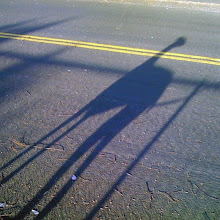A Rome with a View (Not to Mention a Turin, a Florence, a Palermo...)
You see, there is a value to storytelling. And to the joy of motifs, as, for instance, a mother's joke about playing castanets grows richer each time we encounter it. And a value to characters popping back up like we all lived in world where Charles Dickens got to play god. There would be worse things, and that's why a movie like this one is so rewarding.
It tells the story of a family, focusing mainly on two brothers who aren't just opposites; the way one takes on the traits of the other at times over the course of the film is one of its fascinations. It weaves in history, from the flood in Florence in the '60s to the mafia murders in Sicily in the '90s, because people live in a time larger than themselves. And it never does so just for a punchline (AKA Forrest Gump syndrome), but rather enriches the characters, as they actually have stakes to play with (is being a revolutionary worth giving up one's family, for instance?), and it makes history rich and real and personal, which we all say is true but then don't believe.
Even at six jam-packed hours--it could be longer, easily, without complaints--it allows room for mystery. Why is one of the brothers so angry? How much weight are we to give to a crucial early incident when the two brothers watch helplessly as the police take away the asylum patient they sprung? In some ways this event, when they lose Georgia, who they kindly if naively got out of a hospital where she was given electro-shock, only to find when they bring her to her father he really doesn't want her--well, it kick starts Nicola's decision to be a psychiatrist, Matteo's to be a cop. Each wants order, so badly, in such different ways. But even a six hour plot at times too neat is too messy, sort of like life. Georgia is one of those movie-only figures: institutionalized, surprisingly wise, unsurprisingly beautiful--this is a movie, after all--and she gets one of the most haunted, haunting close-ups in the picture. Still, unlike an American film where at some point we'd get a flashback that definitively explained the causes of her debility, we never get that here. Hints, there are plenty, but outright answers, few.
Sure it's melodrama, but there's rarely anything mellow about it. There's the Hitckhcock line, "The cinema is not a slice of life, it's a piece of cake." The Best of Youth is the whole damn pasticceria.


0 Comments:
Post a Comment
<< Home